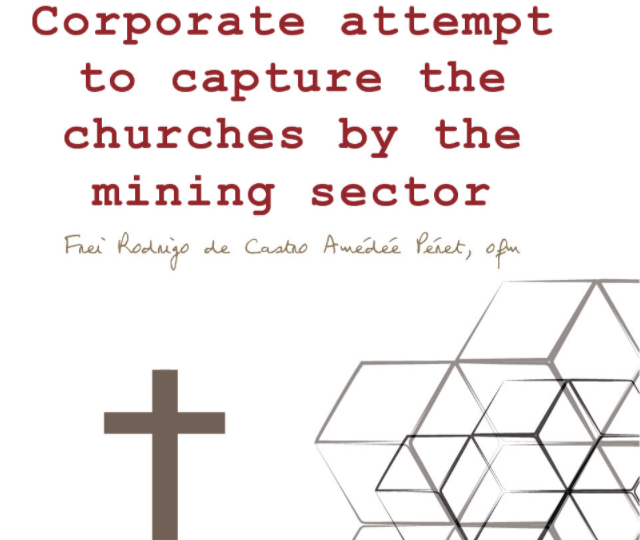
In the last two decades, the mining extractivism has sharpened its actions in the territories of agricultural communities and indigenous peoples in Latin America. In that same period, actions of resistance to mining extractivism have increased. For this reason, the mining companies do everything possible for the churches to help them achieve social acceptance.
Friar Rodrigo Péret, ofm, a franciscan brother from Brazil, makes a detailed report on the strategies of the mining companies to co-opt the hierarchies of our churches.
“This is a brief reflection from a territory, where the reality of mining reveals that living is a permanent risk. The crimes for rupturing the mining tailings dams, in particular those of the company Vale and BHP Billinton (Samarco), in Mariana-MG (2015), and Vale, in Brumadinho-MG (2019), caused 20 and 272 deaths respectively; the destruction of two rivers and great environmental impacts; and unmasked mining as a perverse business, generating wealth for a few, with the support of the state powers. The lives of the affected populations are still on hold. These crimes, more than an exception, reveal some characteristics of the current mining model”.
According to the study carried out by Rodrigo Péret, the efforts of mining companies date back to 2013: “there has been a clear movement of transnational companies from the mining sector towards the summits of several churches. As can be seen in the documentation of this sector, the aim is to establish a relationship between the mining companies and the churches through what the companies call “dialogue”. For this “dialogue”, initially, the big transnational corporations in the mining sector requested meetings called “Days of Reflection” from the Catholic, Anglican and Methodist churches”.
This is undoubtedly a detailed investigation, which religious leaders should study and follow up on. Their understanding will facilitate their pastoral work with communities affected by mining.












